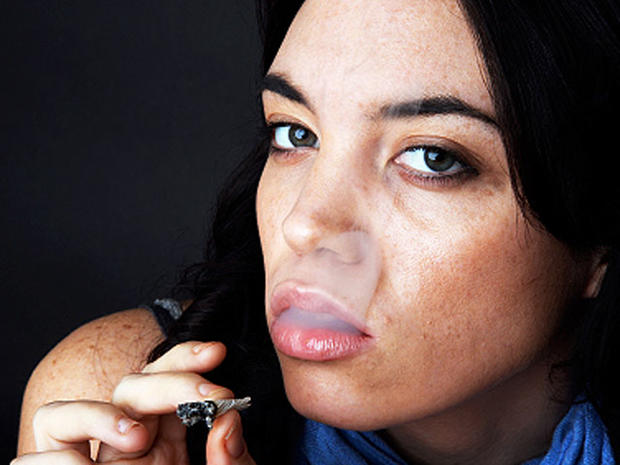Teen drug abuse rising: Why?
(CBS) Just say...yes?
Teenage drug abuse is trending upward, according to the Partnership at Drugfree.org. It announced results of a new study showing sharp increases in the use of marijuana and Ecstasy after years of declining use.
In addition, teens' attitudes about underage drinking have gotten more relaxed.
The study showed that most teen drinkers reported having had their first drink by age 15, and that means a real drink rather than simply sipping or tasting alcohol. One in four said they had a real drink by age 12.
Forty-five percent of teens said they didn't think even daily heavy drinking was a "great risk," and only 31 percent said they strongly disapprove of teen drunkenness.
The study also showed no decline in the percentage of teens abusing prescription or over-the-counter drugs. Rates of cocaine/crack abuse were stable too, and teen use of heroin remains low as well, with 4 percent of teens saying they had used the drug.
What do experts make of what some term a disturbing trend?
"We are troubled, but not completely surprised, by these numbers because, in schools and communities across the country, support for drug education and prevention programs has been cut drastically due to budgetary pressures," Steve Pasierb, president and CEO of the partnership said in a written statement.
The organization was formerly known as Partnership for a Drug-Free America.
If formal programs are unable to rein in substance-abusing youngsters, that means things are up to mom and dad.
"These findings should serve as a call to action for parents," Dennis White, president and CEO of MetLife Foundation, co-sponsor of the study, said in the statement. "We encourage parents and caregivers to pay attention to the warning signs of teen drinking and other drug use, in order to intervene early and effectively."
Warning signs include red, glazed eyes, fatigue, repeated health complaints, sudden mood changes, depression or low self-esteem, and problems with friends or school, including truancy, according to the American Academy of Child & Adolescent Psychiatry.
Parents who suspect a problem should not wait, experts say. Instead, get help at once.
